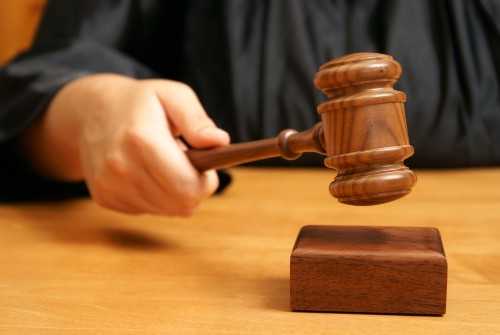Security deposits play a crucial role in protecting landlords and tenants alike. For both parties, understanding the legal requirements surrounding security deposits is essential to ensure compliance with Pennsylvania laws. This article aims to provide a comprehensive overview of the laws and requirements regarding security deposits in Pennsylvania, empowering landlords and tenants with the knowledge they need to navigate this aspect of the rental process.
Understanding Security Deposits
A security deposit is a sum of money collected by a landlord from a tenant at the beginning of a lease agreement. Its purpose is to provide financial security to the landlord in case the tenant fails to fulfill their obligations under the lease. These obligations typically include rent payments, damages to the property, or unpaid utilities.
Legal Limitations on Security Deposits
In Pennsylvania, the law imposes certain limitations on security deposits to protect tenants from unfair practices. As of the knowledge cutoff date of September 2021, the following regulations apply:
- Maximum Deposit Amount: Landlords cannot demand a security deposit exceeding the amount of two months’ rent for the first year of the lease. After the initial year, the landlord can only request a maximum of one month’s rent as a security deposit.
- Written Rental Agreement: It is crucial to have a written rental agreement that clearly specifies the terms and conditions of the lease, including the security deposit amount, terms of return, and any deductions that may be made.
- Holding Security Deposits: Landlords are required to keep security deposits in an escrow account separate from their personal funds. Alternatively, landlords can post a bond or obtain a certificate of deposit to secure the tenant’s deposit.
- Timelines for Return: After the tenant moves out, landlords have 30 days to return the security deposit or provide an itemized list of deductions made from the deposit. If deductions are made, the landlord must provide receipts or estimates for the repairs or cleaning performed.
- Tenant Remedies: If a landlord fails to return the security deposit within the specified timeline, the tenant may be entitled to double the amount wrongfully withheld, plus court costs and attorney fees.
Exceptions and Special Circumstances
There are specific scenarios where different rules and requirements apply to security deposits in Pennsylvania. Some exceptions include:
- Student Housing: Landlords of student housing, such as university dormitories or other housing specifically designated for students, may have different rules regarding security deposits. It is essential to consult with legal professionals or the housing institution to understand the specific regulations that apply.
- Commercial Properties: The laws governing security deposits in Pennsylvania primarily focus on residential properties. Commercial properties may have different guidelines and requirements for security deposits. It is advisable to seek legal counsel for detailed information on commercial property security deposits.
Why Seek Legal Counsel?
Navigating the intricacies of security deposit laws can be complex, and both landlords and tenants may face challenges along the way. Seeking legal counsel from an experienced attorney can provide invaluable support and guidance throughout the process. Here are a few reasons why you may want to consider consulting a real estate attorney:
- Expert Knowledge: Real estate attorneys specialize in landlord-tenant matters and possess comprehensive knowledge of the legal framework surrounding security deposits. They stay up to date with any changes or updates to the laws, ensuring that you receive accurate and current advice tailored to your specific situation.
- Interpretation and Compliance: Security deposit laws can be intricate, and it’s crucial to understand their nuances to avoid legal pitfalls. An attorney can help you interpret the laws, ensuring that you comply with all relevant regulations. They can review your lease agreements, identify any potential issues, and provide guidance on how to address them effectively.
- Dispute Resolution: In the event of a dispute over a security deposit, an attorney can guide you through the resolution process. They can advocate for your rights and represent your interests during negotiations or court proceedings. With their expertise, they can help you achieve a fair and favorable outcome.
- Legal Documentation: A real estate attorney can assist you in drafting or reviewing rental agreements and lease contracts, ensuring that they comply with Pennsylvania’s security deposit laws. Having legally sound documentation in place helps protect your interests and minimizes the risk of future disputes.
- Peace of Mind: Dealing with security deposits can be stressful for both landlords and tenants. By working with an attorney, you can have peace of mind, knowing that you have a legal expert on your side. They can answer your questions, provide advice, and handle the legal aspects, allowing you to focus on other important matters.
Understanding the legal framework surrounding security deposits in Pennsylvania is vital for both landlords and tenants. By adhering to these regulations, landlords can protect their rights and maintain a positive landlord-tenant relationship. Tenants, on the other hand, can ensure fair treatment and the timely return of their deposits.
At Gibson & Perkins, PC, we have a team of experienced attorneys specializing in real estate law. Whether you are a landlord or a tenant, our legal experts can provide comprehensive guidance on all matters related to security deposits in Pennsylvania. Contact us today to schedule a consultation and ensure that your rights are protected.
Pennsylvania’s laws regarding security deposits are designed to strike a balance between the rights and responsibilities of both landlords and tenants. It is essential for both parties to be aware of their obligations and rights when it comes to security deposits. By staying informed and seeking legal advice when necessary, landlords and tenants can navigate the rental process with confidence and peace of mind.
For expert legal guidance on security deposit matters in Pennsylvania, contact Gibson & Perkins, PC today. Our experienced attorneys are ready to assist you and ensure your rights are protected.
